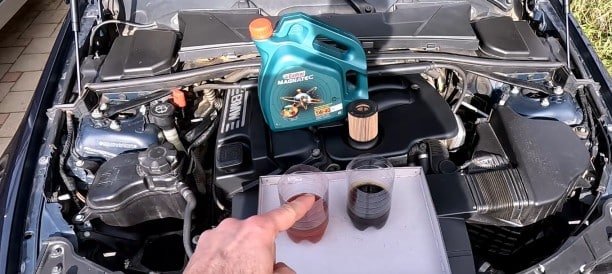Regular maintenance is crucial for preventing engine failure and ensuring the longevity of your vehicle. By following a few simple steps and staying on top of routine maintenance tasks, you can significantly reduce the risk of engine failure.
1. Regular Oil Changes
One of the most important maintenance tasks to prevent engine failure is regular oil changes. Engine oil lubricates the moving parts of the engine, reducing friction and preventing wear and tear. Over time, oil becomes contaminated with dirt, debris, and other impurities, which can lead to engine damage if not changed regularly.
To prevent engine failure, it is recommended to change your engine oil every 3,000 to 5,000 miles or as recommended by your vehicle manufacturer. Regular oil changes will ensure that your engine is properly lubricated and protected from excessive wear.
2. Maintain Proper Coolant Levels
Engine overheating is a common cause of engine failure. To prevent overheating, it is essential to maintain proper coolant levels in your vehicle. Coolant, also known as antifreeze, helps regulate the engine’s temperature and prevents it from overheating.
Regularly check your coolant levels and top up if necessary. It is also important to flush and replace the coolant as recommended by your vehicle manufacturer. This will help prevent engine failure due to overheating and ensure that your engine stays cool and runs efficiently.
3. Replace Air Filters
Air filters play a crucial role in preventing engine failure by keeping dirt, dust, and debris from entering the engine. Over time, air filters become clogged and dirty, restricting airflow to the engine. This can lead to poor engine performance, decreased fuel efficiency, and even engine damage.
To prevent engine failure, it is important to replace your air filters regularly. Check your vehicle’s owner’s manual for the recommended replacement interval, but generally, air filters should be replaced every 12,000 to 15,000 miles. Regularly replacing air filters will ensure that your engine receives clean air, preventing damage and improving overall performance.
4. Check and Replace Spark Plugs
Spark plugs are responsible for igniting the air-fuel mixture in the engine’s cylinders. Over time, spark plugs can become worn out, leading to misfires, decreased fuel efficiency, and engine failure. It is important to check your spark plugs regularly and replace them when necessary.
Most manufacturers recommend replacing spark plugs every 30,000 to 50,000 miles, but this can vary depending on the type of spark plugs and your driving conditions. By replacing spark plugs at the recommended intervals, you can ensure proper combustion and prevent engine failure.
5. Regularly Inspect Belts and Hoses
Belts and hoses in your vehicle’s engine play a crucial role in the proper functioning of various components, such as the alternator, water pump, and power steering. Over time, belts can become worn out, cracked, or loose, while hoses can develop leaks or become brittle.
Regularly inspecting belts and hoses and replacing them when necessary can prevent engine failure. Check for signs of wear, such as cracks, fraying, or bulges, and replace any damaged belts or hoses immediately. By doing so, you can ensure that all engine components are functioning properly and prevent potential failures. Read more car engine care essential maintenance tips for optimal performance here.
Conclusion
Regular maintenance is essential for preventing engine failure and keeping your vehicle running smoothly. By following the tips mentioned above and staying on top of routine maintenance tasks like oil changes, coolant checks, air filter replacements, spark plug inspections, and belt and hose inspections, you can significantly reduce the risk of engine failure. Remember to consult your vehicle’s owner’s manual for specific maintenance intervals and recommendations. Taking care of your engine through regular maintenance will not only save you from costly repairs but also extend the life of your vehicle.

